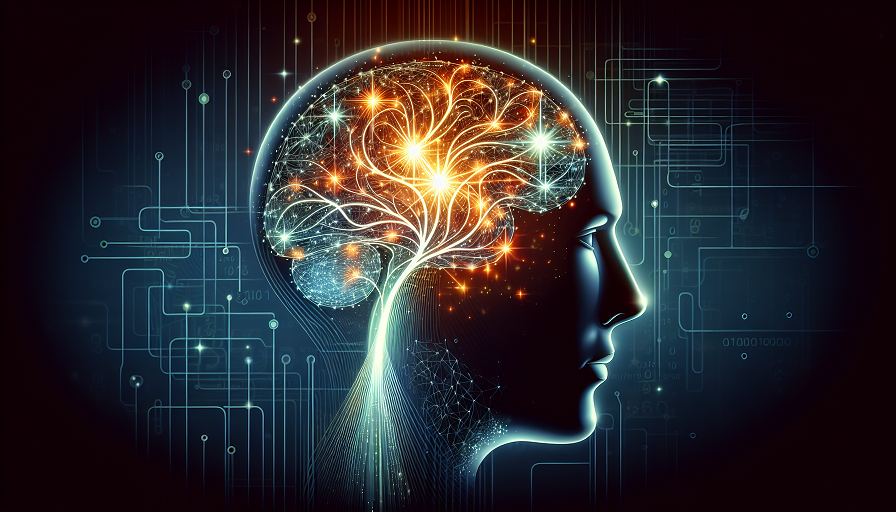
Have you ever wondered why some memories stick with you vividly while others fade away? Often, the answer lies in the emotions tied to those experiences. Emotions play a powerful role in shaping how memories are formed, stored, and recalled. Whether it’s the joy of a milestone achievement, the sorrow of a loss, or the adrenaline of a thrilling adventure, emotions can make certain moments unforgettable.
Contents
The Connection Between Emotions and Memory
Emotions and memory are closely linked, with emotional experiences often leaving a lasting imprint on our minds. This connection can be traced back to the way the brain processes and prioritizes information. Here’s how emotions influence memory at a fundamental level:
The Role of the Amygdala
The amygdala, a small almond-shaped structure in the brain, plays a central role in processing emotions. It’s particularly active during emotionally charged events and works closely with the hippocampus, which is responsible for memory formation. When the amygdala is activated, it enhances the encoding of memories, making them more vivid and easier to recall.
Emotional Arousal and Attention
Emotional events often capture our attention more effectively than neutral ones. This heightened attention improves the brain’s ability to encode and store these memories.
The Release of Stress Hormones
During emotional experiences, the body releases stress hormones such as adrenaline and cortisol. These hormones enhance memory consolidation, particularly for significant or life-altering events.
Why Emotional Memories Are More Vivid
Emotional memories tend to be more vivid and detailed than neutral ones. This phenomenon, known as “flashbulb memory,” occurs because the brain prioritizes emotionally significant events. Here’s why:
Prioritization of Survival-Relevant Information
From an evolutionary perspective, remembering emotionally charged events can be crucial for survival. For instance, recalling a dangerous situation helps individuals avoid similar threats in the future.
Stronger Neural Connections
Emotions strengthen the neural connections associated with memory, making it easier to recall specific details later. This is why you may remember the color of the shirt you wore on a particularly emotional day but forget what you wore last Tuesday.
Repetition and Retelling
Emotional memories are often revisited or retold, reinforcing them over time. Each recall can strengthen the memory, embedding it more deeply into the brain.
Positive vs. Negative Emotions and Memory
Both positive and negative emotions impact memory, but they do so in slightly different ways:
Positive Emotions
Positive emotions, such as joy, excitement, and love, enhance memory by promoting a relaxed and receptive state of mind. Memories tied to positive experiences are often associated with broader contexts and details, making them more comprehensive.
Negative Emotions
Negative emotions, like fear, sadness, or anger, also enhance memory but may focus more narrowly on specific details or threats. This can be beneficial in dangerous situations but may contribute to conditions like post-traumatic stress disorder (PTSD), where negative memories become intrusive or overwhelming.
The Science of Emotional Memory: Key Studies
Numerous studies have explored the link between emotions and memory. Here are a few significant findings:
Cahill and McGaugh (1995)
This landmark study demonstrated that emotionally arousing events are more likely to be remembered than neutral ones, thanks to the role of the amygdala and stress hormones in enhancing memory consolidation.
Flashbulb Memories
Research on flashbulb memories has shown that people often have vivid recollections of where they were and what they were doing during significant events, such as natural disasters or major historical moments.
Emotional Valence and Memory Recall
A 2018 study found that people tend to recall positive memories more vividly and frequently than negative ones, highlighting the role of emotional valence in shaping memory retrieval.
How Emotions Impact Learning and Retention
The connection between emotions and memory has important implications for learning. Here’s how emotions influence the learning process:
Motivation
Emotions like curiosity and excitement enhance motivation, making it easier to engage with and retain new information.
Contextual Learning
Emotionally engaging content is more likely to be remembered because it creates a meaningful context for learning. For example, storytelling in education leverages emotions to make lessons more memorable.
Stress and Performance
While moderate stress can improve focus and retention, excessive stress hampers learning by impairing memory consolidation and retrieval.
Practical Applications: Harnessing Emotions for Better Memory
Understanding the link between emotions and memory can help you improve your recall and learning abilities. Here are some strategies to try:
Engage Emotionally with Material
When studying or working on a project, try to connect emotionally with the content. Relate it to personal experiences or visualize its real-world impact.
Use Positive Reinforcement
Reward yourself for completing tasks to associate positive emotions with the activity, enhancing your motivation and retention.
Manage Stress Levels
Practice stress-management techniques such as mindfulness, meditation, or exercise to keep stress at a productive level.
Leverage Music and Storytelling
Music and storytelling can evoke emotions that aid memory. Use these tools to make information more engaging and easier to recall.
When Emotions Hinder Memory
While emotions often enhance memory, they can sometimes have the opposite effect. Highly traumatic events, for example, may lead to memory suppression or fragmentation. This occurs because extreme stress impairs the hippocampus, disrupting the encoding and storage of memories.
Post-Traumatic Stress Disorder (PTSD)
In PTSD, negative emotional memories become intrusive and difficult to manage. Therapeutic techniques, such as cognitive-behavioral therapy (CBT) or eye movement desensitization and reprocessing (EMDR), can help individuals process and reframe these memories.
Emotions are a powerful force in shaping how we experience and remember the world around us. By influencing attention, memory consolidation, and retrieval, emotions ensure that significant events leave a lasting impact. Understanding the connection between emotions and memory can help us improve learning, manage stress, and harness our emotions to live more productive and fulfilling lives. Whether recalling cherished moments or navigating challenging memories, the interplay of emotion and memory highlights the incredible complexity and resilience of the human mind.

